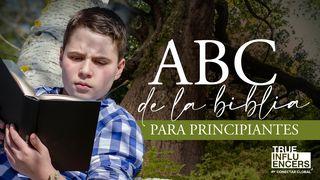Hebrews: Christ Is Greater and BetterMuestra

The New Order
Read Hebrews 10:1-18
The ‘second’ can be established only when the ‘first’ has been set aside (v 9b). The ‘second’ is made possible by the wholehearted obedience of Christ (vs 7b, 9a). The believers’ sanctification is now made possible (vs 10, 14, 16b).
Christ and His new order are the good things, which had already come. Definitely these people under the Law knew nothing of these good things where pardon, certainty and peace dwell. The Law was but a shadow (v 1) and not the true form. While they had the annual reminder of sins (v 3), we have a daily reminder of the imputed holiness, righteousness and the very presence of God (v 17, Romans 8:15).
John the Baptist declared that Jesus is 'the Lamb that takes away the sins of the world'. David also prophesied: 'A body you have prepared for me' and 'I have come to do your will, O God' (vs 5b, 7b). These were fulfilled in Christ’s incarnation and earthly ministry respectively. All our sacrifices will come to nothing unless they are living sacrifices (Romans 12:1) made out of obedience and total devotion to God. This has to originate from our inward cleansing by Christ's sacrifice (v 10) and our secured and consecrated position, which Christ has already provided (v 14).
'It is done.' We must keep on proclaiming this truth. There is no more remembrance of sin (v 17) as compared with the old covenant where there was an annual reminder of sins (v 3). Further, we now have the will and power to obey God because His laws are now in our hearts and minds (v 11) and not on stone tablets.
The new order, accompanied by the Holy Spirit, has made obedience (and sanctification) possible (Romans 8:15).
Escritura
Acerca de este Plan

These devotional readings from Scripture Union Peninsular Malaysia are written from the thoughts and insights of Asian writers. Hebrews gives us a detailed description of who Jesus is and his work of salvation for all mankind. He is greater and better than the prophets, priests and sacrifices that have come before. He is the 'new' who has come to replace the 'old'.
More
Planes relacionados
Marcas De Un Discípulo

Confiando en Los Propósitos De Dios

1 Tesalonicenses: Modelos a imitar

Que El Mundo Crea

¡Levántate! 7 Claves Para Levantarte Y Seguir.

La Gracia. 7 Claves Para Vivir en Plenitud.

ABC De La Biblia Para Principiantes

ABC De La Oración ... Para Principiantes.
